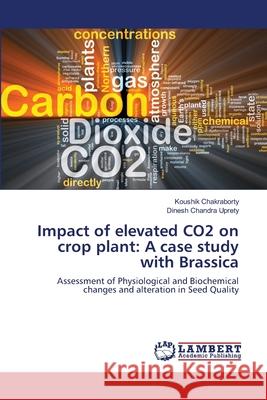Impact of elevated CO2 on crop plant: A case study with Brassica » książka
Impact of elevated CO2 on crop plant: A case study with Brassica
ISBN-13: 9783659168680 / Angielski / Miękka / 2012 / 116 str.
This is a research based study for characterization of physiological and biochemical responses of crop plants to elevated level of atmospheric CO2 concentration which is one of the most likely outcomes of global climate change. The crop addressed is Indian mustard (Brassica spp.) which is being a C3 plant, is vulnerable to changes in atmospheric CO2 concentration and temperature as it is mostly cultivated in tropical and sub-tropical regions of the world. The differential responses of Brassica cultivars indicated the selection of RH 30 (B. juncea) as the better responsive cultivar for future higher CO2 concentration. The overall characterization of responses of these cultivars to high CO2 environment suggests a suitable cultivation and nutrient management system for future climatic condition. The data collected in the present investigation will help in development of plant type and model plant for future climate change.











